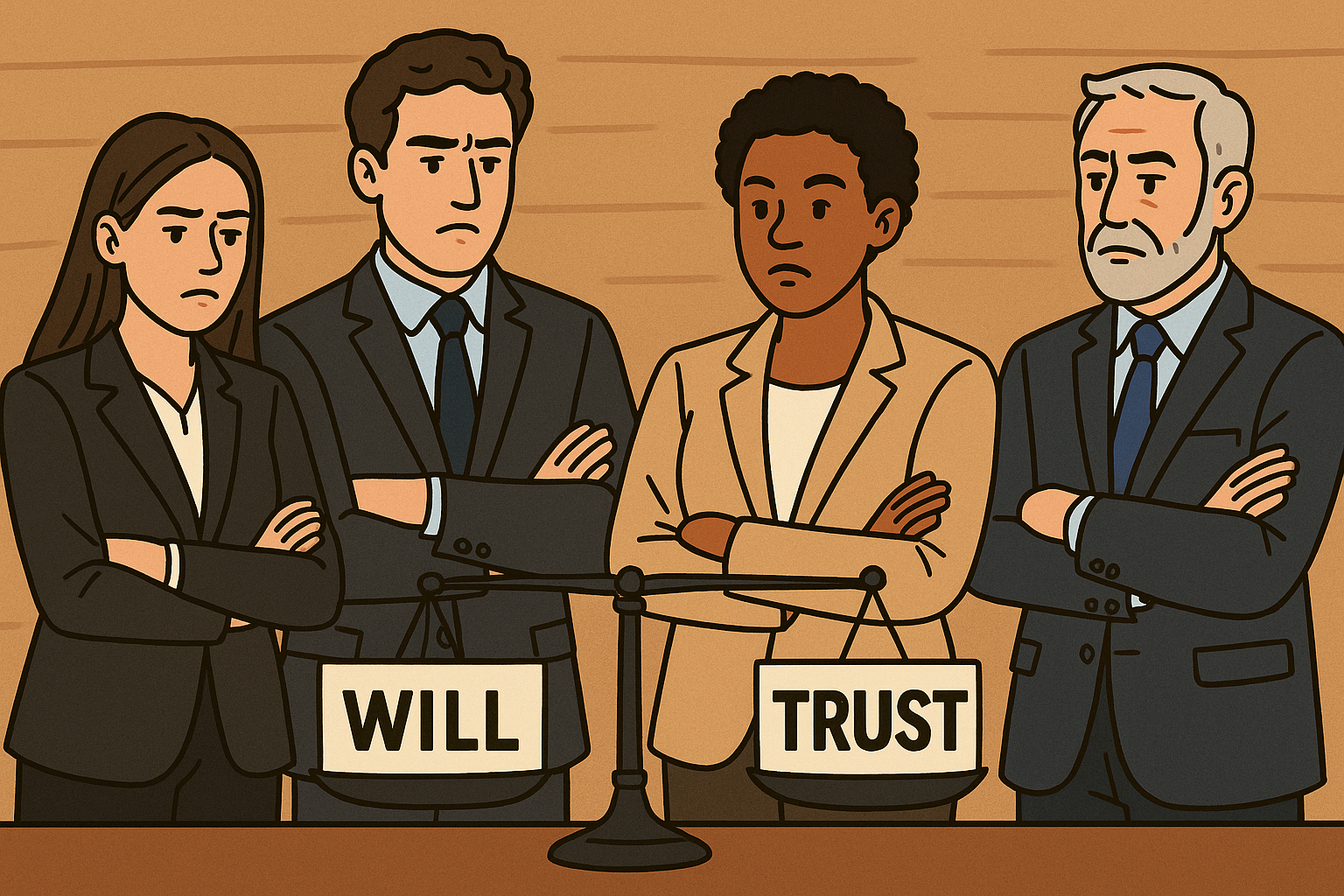
Website Powered by Bailey's Assets

At ExperityCPA, we believe financial clarity should be accessible to everyone. Our team brings together over a decade of experience in accounting, tax strategy, and financial consulting. Whether you are planning your retirement, minimizing estate taxes, or securing your family's financial future, we help you design strategies that align with your values and long-term goals. Our estate planning services are tailored to give you peace of mind, empowering you to make informed decisions that protect your legacy.
One of the most common questions we hear from clients is whether they need a will, a trust, or both. This blog dives deep into the differences between a will and a trust, how each functions, and how to decide which option fits best with your estate planning goals.
A will is a legal document that outlines your wishes for distributing your assets after death. It can also appoint guardians for minor children, name an executor to carry out your instructions, and even detail final arrangements such as burial or cremation.
A trust is a legal entity that holds property or assets for the benefit of a third party, managed by a trustee. Unlike a will, a trust can take effect while you are still alive and continue after death, allowing for more control and flexibility over how and when assets are distributed.
While both wills and trusts serve essential roles in estate planning, they differ in significant ways. A will takes effect only after death and must go through the probate process, which can be time-consuming, expensive, and public. In contrast, a trust becomes effective as soon as it is created and funded, and it typically avoids probate, allowing for faster and more private distribution of assets. Wills are generally simpler and less expensive to set up initially, but they provide limited control over how and when assets are distributed. Trusts, on the other hand, offer more flexibility, allowing you to manage and distribute assets during your lifetime and after death. This makes trusts especially useful for complex estates or situations involving minor children, blended families, or special needs beneficiaries. Additionally, certain types of trusts, like irrevocable trusts, can be used to minimize or even eliminate estate taxes, while wills do not offer the same level of tax planning benefits. Ultimately, the choice between a will and a trust comes down to your individual goals, financial situation, and the level of control and privacy you desire.
Deciding between a will and a trust depends on your unique situation, financial complexity, and personal preferences.
In many cases, a well-rounded estate plan includes both a will and a trust. A pour-over will can serve as a backup to your trust, ensuring that any assets not already placed into the trust at the time of your death are automatically transferred into it.
One of the critical roles of both a will and a trust is to reduce the tax burden on your estate and heirs. Federal estate taxes can be significant for high-net-worth individuals, and certain states impose their own estate or inheritance taxes.
An experienced estate planning service like ExperityCPA can help analyze your financial picture to determine which legal instruments will offer the greatest tax savings and asset protection.
Wills and trusts are powerful tools, but they are only effective if structured correctly. Many DIY estate planning templates fail to account for complex family dynamics, changing tax laws, or future changes in asset value. Poorly drafted documents can lead to legal battles, delays, and unintended outcomes.
Working with professionals who understand both estate planning and tax strategy ensures your documents are legally sound, tax-efficient, and aligned with your wishes. At ExperityCPA, we bring together attorneys, CPAs, and advisors to craft a holistic plan that grows with you.
When you choose ExperityCPA, you’re not just getting a will or trust. You’re getting a comprehensive estate planning service that:
Whether you're starting from scratch or updating existing documents, our team can walk you through every option. We focus on simplicity, security, and long-term success.
A will and a trust are not either-or tools. Instead, they can work together as part of a strong estate planning strategy. A will helps ensure nothing is overlooked, while a trust provides control, efficiency, and privacy.
The best choice depends on your specific needs, but one thing is clear: proactive estate planning is one of the most important financial decisions you can make.
Don’t leave your legacy to chance. Let the experts at ExperityCPA help you build a secure, tax-smart, and meaningful estate plan that honors your life’s work.
Contact ExperityCPA to schedule your estate planning consultation. Our team is ready to answer your questions, review your current documents, and create a plan that fits your life and legacy.